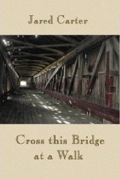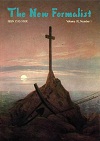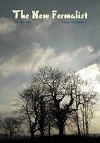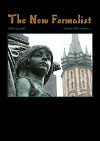Mum’s the Word…
There are more poems in the world
Than empty beer bottles.
—Lindley William Hubbell
Introducing yet another bard to his or her peers…
The coordinator reads the kudos, and no one jeers
At (here we go again) the TRIUMPHANT notation:
Today’s featured poet has a Pushcart Nomination!
Even more jubilant, poets boasting three, or four.
How many does Lyn Lifshin have? (Is she keeping score?)
I hate to be a killjoy, but the math’ll make you laugh
If you do the math (poets usually suck at math!).
Bill Henderson informs me that in two thousand nine
5000 poems were nominated (none of them were mine!)
Which leaves me open to the charge: Alpaugh’s bitter!
His work is clearly second rate. He’s not a heavy hitter!
Of course I much prefer to think that I’ve been overlooked
Because “emerging” MFAs have had the po-books cooked;
That I don’t have creative writing profs in my hip pocket;
Nor a “contributing editor” to muscle me onto the docket.
But if one day I should receive that Pyrrhic nomination
I pray I won’t succumb to the all-powerful temptation
To crow about it smugly on the back of my next book
Causing readers I respect to snigger: What a schnook!
Why go on about a john where scads of poems are tossed?
Because being a PP nominee merely means YOU’VE LOST!
(Prince, if you WIN a Pushcart Prize tell the world about it!
If you’re one of 5000 losers mum’s the word! WHY SHOUT IT?)
Professor Shakespeare Takes on a Poet
Who Adores VERSE in Languages He Can’t Read
Burning the Dunce Cap
What if the problem is just
that the problem cannot be stated—
not with “propriety”?
That’s precisely the problem
when the problem is nothing
but age-old stupidity.
Our public menace
moons us everywhere—
millions display it.
Everyone sees it.
Everyone knows it.
But no one will say it.
Stupidity’s been excised
as a technical term
by modern biology
And cleverly disguised
as a democratic virtue
by upstart sociology.
Call the stupid “stupid”
and they’ll find a word for you—
“callous” or “heinous.”
Every politician
knows what happened
to Coriolanus.
We must bring back “stupid”
to use without fear
at true provocation.
Bringing back “stupid”
is the most important challenge
facing our nation.
Let stupid be “stupid.”
Say it with pride—
no lite substitutes.
Let stupid be “stupid.”
Let no fool escape—
no gold parachutes.
I’m not that afraid
of burning the flag—
We’ll survive the attack.
It’s burning the dunce cap
that terrifies me:
We must bring it back.
(Originally published in Poultry)
Statement
Today I am throwing old checks away
That lay in a shoebox five years, fearing audit.
They’re free—free, at last, to burn or decay.
Money still talks, but her ghouls simply say,
“Something was sold at a price and you bought it.”
Today I am throwing old checks away.
Each bears its signature; year, month & day;
And pays to the order of Mammon: due profit.
They’re free—free, at last, to burn or decay.
Here’s one for Sears; here’s one for ballet;
Airfare to Rome; a homeless benefit.
Today I am throwing old checks away,
Saying “Ciao!” to old wolves they kept at bay
While they tended our credit and fed it bit by bit.
They’re free—free, at last, to burn or decay.
I crumple the papered past. I murmur, “Hurray.”
It’s my shredder now must reconcile chit, chit, chit.
Today I am throwing old checks away.
They’re free—free, at last, to burn or decay.
(Originally published in The Formalist)
War and White Wine
Someone’s campaigning.
Someone’s been shot.
Somewhere it’s raining.
Someplace it’s hot.
Six PM: Baghdad’s on the line.
Time for war and white wine.
The Beast’s in a cave somewhere, hiding.
Three newsmen have disappeared.
Jihadists are suiciding,
Demagogues being cheered.
A protester holds up a sign.
Time for war and white wine.
Bereft mothers are weeping,
Beheading terrorists glad.
Sons and daughters are reaping
The faith of their fathers gone mad.
You and me? We’re doing fine.
Sipping war and white wine.
(Originally published in Free Lunch)



